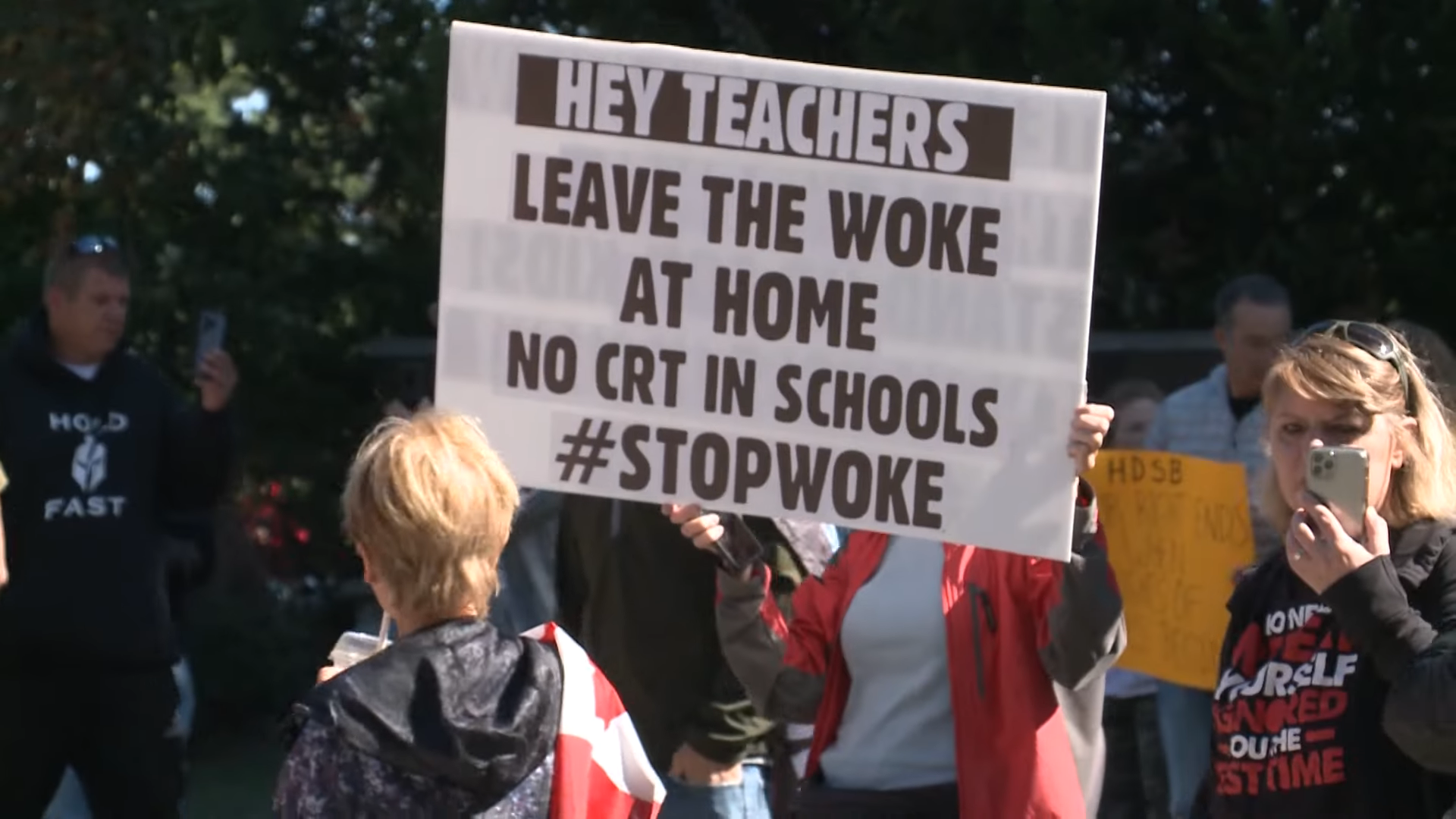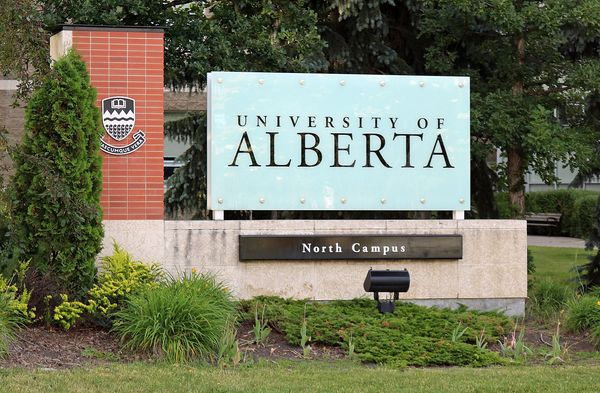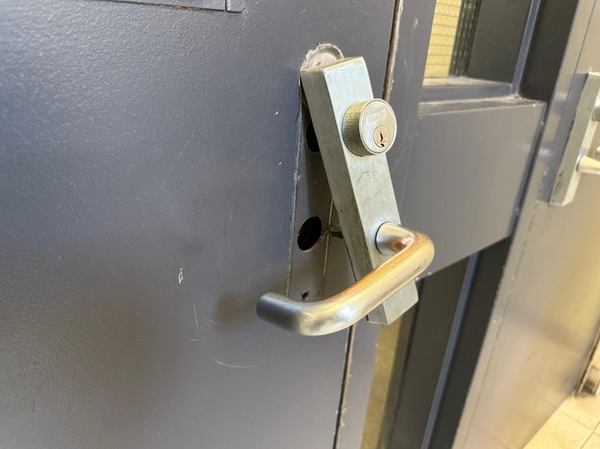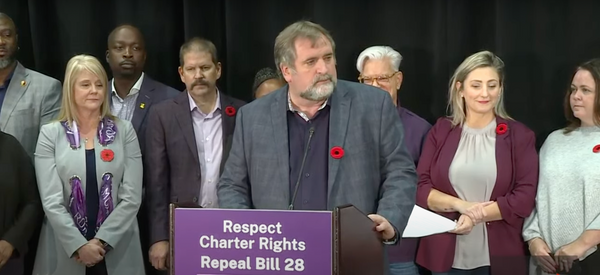Since the beginning of the pandemic, the school system in the United States has increasingly been targeted by the political right in its never-ending culture war.
This process began with right-wing groups creating panic over the spectre of mask and vaccine mandates. Playing on genuine fears and uncertainty, these figures took talking points from their social media groups and spread them to more mainstream platforms for parenting advice. These ideas then got picked up in national news outlets by prominent pundits, and seized upon by politicians. As a result, scared, angry parents were encouraged to take their concerns to their school board, as reflected in those viral videos of dads yelling about freedom to harried civil servants and elected officials. When no parents of children at these schools showed up, members of the lobbying groups and think tanks that championed the cause would act the part.
After the early success these groups had at generating fear and outrage, the machine was aimed at a wider set of goals, and new panics were created around the subjects of critical race theory (CRT) and gender identity theory. Once again, these groups described imagined horrors in schools, conjuring up lies about what’s being taught to children, and how. Parents, already angry and primed for a fight, took up the new battle cry.
Meanwhile, the organizations behind these efforts were funding and promoting school board candidates who promised to ‘do something’ about these supposed problems. The resulting campaigns often easily overwhelmed formerly low-turnout, low-stakes school board elections, resulting in a rash of “anti-woke” figures gaining power across the U.S.
Now fulfilling their campaign promises, these figures are using their power to strip protections from marginalized students, enact anti-trans and homophobic policies, and prevent teachers from speaking about race. Under the guise of “protecting the children,” for example, more than 60 per cent of school districts in Illinois have opted out of the National Sex Education Standards, which are intended to help ensure students are taught basic information about consent, gender identity and healthy relationships. These standards have been replaced by ones often severely lacking, covering only very basic concepts and leaving students unprepared and misinformed.
In addition, Ohio’s State Board of Education, one of the largest school boards in the U.S., has put forward a resolution to reject the proposed Title IX LGBTQ+ protections in its schools. These protections would add gender identity and sexual orientation to sex-based discrimination, and prevent schools with anti-LGBTQ+ policies in place from receiving aid through some federally funded programs.
Moreover, from July 2021 to June 2022, there were about 2,530 instances of books being banned in the U.S., impacting about 1,640 titles, 41 per cent of which cover LGBTQ+ issues or have queer protagonists or secondary characters, and 40 per cent featuring racialized protagonists or secondary characters.
Unfortunately, these sorts of groups haven’t limited their ambitions to the U.S.
Canada has some advantages over the U.S. in this fight. The misinformation apparatus at the right’s disposal here isn’t quite as developed as in the U.S. There’s no real Fox News equivalent, making it more difficult for these groups to spread their message or insert fake experts or ‘concerned citizens’ on the payroll into the conversation.
School board systems in Canada also generally don’t have the power and reach as their equivalents in the U.S, which are often granted extremely broad oversight powers, leaving many decisions regarding school districts in their hands. In Canada, meanwhile, their remit is generally more tightly controlled by the minister of education, and decisions are largely made at a provincial level, meaning any efforts to take control of school boards will also require lobbying for legislative change. In parts of Canada, the school board system is also curtailed by strong teachers’ unions, who can (and should) act against right-wing incursions.
Given these strengths, and a general sense of being ‘better’ than the U.S., it’s easy for Canadians to believe that the education system here won’t face the same problems. But that’s not guaranteed. In fact, as Ontario school board races are in full swing, “anti-woke” groups have already placed candidates in more than half of all districts.
This article will focus on Ontario because it will be holding the first province-wide municipal election following the broad success of the outlined strategies in the U.S., with voting coming to a close on October 24. Here’s an overview of some of the “anti-woke” groups working to take control of school boards in the province and across the country.
FAIR
The Foundation Against Intolerance And Racism (FAIR) was founded in the U.S. by a group of high-profile authors, journalists and media figures, including Steven Pinker, Bari Weiss, John McWhorter, Abigail Shrier, and Christopher Rufo, the man who has been credited with single-handedly inventing the CRT panic. One of the organization’s stated goals is to advance “civil rights and liberties for all Americans.” In reality, however, the organization spends its time effectively defending the “right” of students to misgender schoolmates, attempting to bar teaching materials that mention white privilege from being used in school in at least one case and supporting lawsuits over sex-ed curricula.
This year, the organization spread into Canada. It has started chapters in every province and territory, opening at least six new ones in Ontario this year alone. The Ontario chapters have been actively campaigning against Bill 67, which would require boards to implement actively anti-racist policies, and redefine racism to include systemic and unconscious forms. A presentation to FAIR Ontario claimed that this new definition “endorses racism against white people.”
PAFE
One of FAIR’s most prominent allies in their campaign is the Ontario-based Parents As First Educators (PAFE). Founded in 2011, the group now claims to have more than 80,000 supporters. It was created for the purpose of protesting progressive changes to the Catholic School Board’s sex education curriculum, such as the introduction of the concept of gender identity and the mention of contraception in elementary school. PAFE instead advocated for the continuation of an abstinence-first curriculum that shames students and promotes a fear of sex. Then, the group moved on to target federal bills that proposed banning all types of anti-LGBTQ+ conversion therapy in Canada.
This year, PAFE started its “no gender identity theory” campaign, which has involved lobbying school boards and politicians alongside petitions, all in the effort to remove discussion of gender identity in Ontario schools. But they aren’t limiting themselves to these tactics.
On August 9, the Epoch Times published an article about a shortage of candidates for the upcoming school board trustee elections. They interviewed PAFE’s founder, who doesn’t see the lack of candidates as a negative, instead calling it an opportunity. This sentiment was echoed by National Post columnist Barbara Kay in a September 4 article, where she praises PAFE and FAIR as outlets for parents to “channel their resistance” against CRT and “gender ideology.” The article ends with Kay pointing to the positive results similar groups had in recent school board elections in Florida, and claiming, “If it can happen there, it can happen here. We just need to vote for change.”
Blueprint For Canada
The call to run for trustee positions on an “anti-woke” platform has been taken up, with many candidates united under the “Blueprint For Canada” campaign. Created earlier this year, the “Blueprint” is a manifesto for an “anti-woke” education system, created with the goal of being a shared policy platform to be adopted by candidates who support at least 80 per cent of its points.
It directly cites FAIR’s statement of principles, with policies ranging from dog whistles such as “schools should educate … not indoctrinate,” to more explicit calls for reactionary revisionism like “changing the narrative around ‘colonialism.’” It also advocates for the removal of all courses focusing on issues such as “gender studies,” “equity, diversity, and social Justice” and “world cultures” in schools, promotes “gender critical” viewpoints, and proposes mandatory anti-CRT training for all staff.
Vote Against Woke
The founders of these groups have also pointed their followers toward a new resource, called “Vote Against Woke.” Launched in September, the website contains a page titled “What is Woke Ideology?”, which was written by Quillette editor Jonathan Kay after the group reached out to him asking for the favour. Kay claims the term “woke” is being used to describe “extremists who extrapolate [the] well-intentioned principles” of anti-racism and anti-homophobia “in a radically ill-advised manner.” He claims their movement is “cultish,” and that “wokeism exhibits an unconcealed hostility toward underprivileged members of society who have not internalized faddish ideas about race and gender.”
The website also maintains a list of “recommended” candidates across hundreds of contested races in the public and Catholic school board elections, “based on crowd feedback on the perception that a candidate is non-woke.” While Vote Against Woke’s reach is still small, its recent coverage in the Epoch Times and promotion by Blue Print For Canada point to its continued growth as a tool for conservative voters to centralize support around its “recommended” candidates.
Fortunately for those of us opposed to this agenda, the organization’s database can also serve as a useful list of candidates to avoid (though the guide claims that “the listed candidates are not associated with this site in any way.”) Voters in Ontario would do well to look at this list and then research further, to help ensure these efforts to influence the school system are defeated.







Member discussion